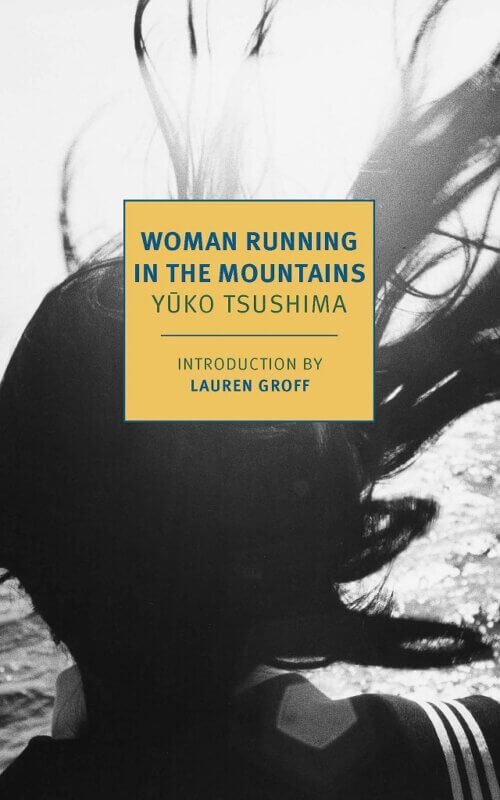08 Mar / Woman Running in the Mountains by Yūko Tsushima, translated by Geraldine Harcourt [in Shelf Awareness]

 In Woman Running in the Mountains, the late great Japanese novelist Yūko Tsushima (1947-2016) unflinchingly confronts the judgmental challenges an unwed woman faces when she defiantly chooses single motherhood. Takiko Odaka is 21 and already an independent spirit. As she goes into labor, she leaves her family home for the maternity hospital to give birth to her son, Akira, alone.
In Woman Running in the Mountains, the late great Japanese novelist Yūko Tsushima (1947-2016) unflinchingly confronts the judgmental challenges an unwed woman faces when she defiantly chooses single motherhood. Takiko Odaka is 21 and already an independent spirit. As she goes into labor, she leaves her family home for the maternity hospital to give birth to her son, Akira, alone.
Akira’s father is long gone. Takiko’s own father remains brutally abusive – as he has been her entire life. Her long-suffering mother attempts to seem detached, having initially urged Takiko toward abortion. Her already embarrassed younger brother, still in high school, wants no involvement. Despite lacking any semblance of support, Takiko learns to care for her infant, arranges childcare, endures grueling parttime work and eventually finds a rewarding job – and meaningful companionship – at a plant nursery. While her adoration for Akira grows, Takiko also manages to retain her own selfhood, seeking adult company when she can, even casually claiming her youthful sexuality. As constricting as social and familial expectations may be, Takiko continues to experience motherhood on her own terms.
Originally published in 1980 and translated by Geraldine Harcourt in 1991, Tsushima’s re-launch is skillfully introduced by Lauren Groff (Matrix), another lauded author who subversively empowers women in her fiction. The 40-year-old narrative retains timeless resonance, despite Harcourt’s jarring word choice of “retarded” to describe Down Syndrome. Twenty-first-century women readers, especially, will immediately recognize the stifling consequences of other people’s definitions for womanhood and motherhood, and find rewarding inspiration in Takiko’s many rebellions, large and small.
Discover: The late, acclaimed Japanese novelist Yūko Tsushima profoundly confronts the timeless familial and societal challenges an unmarried young mother must face.
Review: “Fiction,” Shelf Awareness, March 1, 2022
Readers: Adult
Published: 1980 (Japan); 1991 (first U.S. edition), 2022 (reprint)
